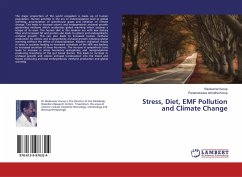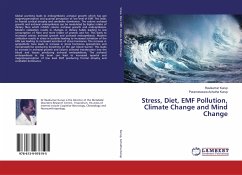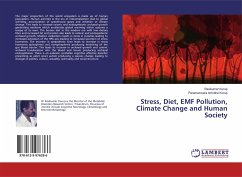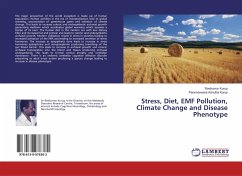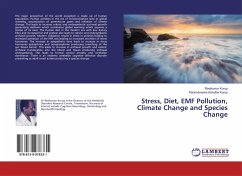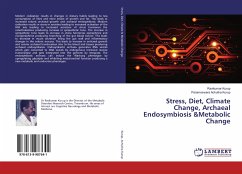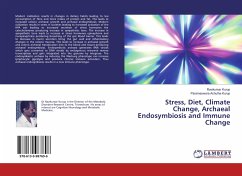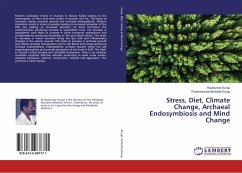The major proportion of the world ecosystem is made up of human population. Human activities in the era of industrialization lead to global warming, accumulation of greenhouse gases and initiation of climate change. This leads to increase colonic and endosymbiotic archaeal growth generating methane which accelerates global warming which assumes a tempo of its own. The human diet in the modern era with low dietary fibre and increased fat and protein also leads to colonic and endosymbiotic archaeal growth. This can also leads to increased human methane production by colonic and endosymbiotic archaeal growth initiating global warming without the effect of industrialization. Modern civilization results in stress in societies leading to increased activation of the HPA axis leading to increased secretion of stress hormones. The increase in sympathetic tone leads to increase in stress hormones epinephrine and norepinephrine producing breeching of the gut blood barrier. This leads to increase in archaeal growth and colonic archaeal translocation into the blood and tissues producing archaeal endosymbiosis, methane production and global warming.

